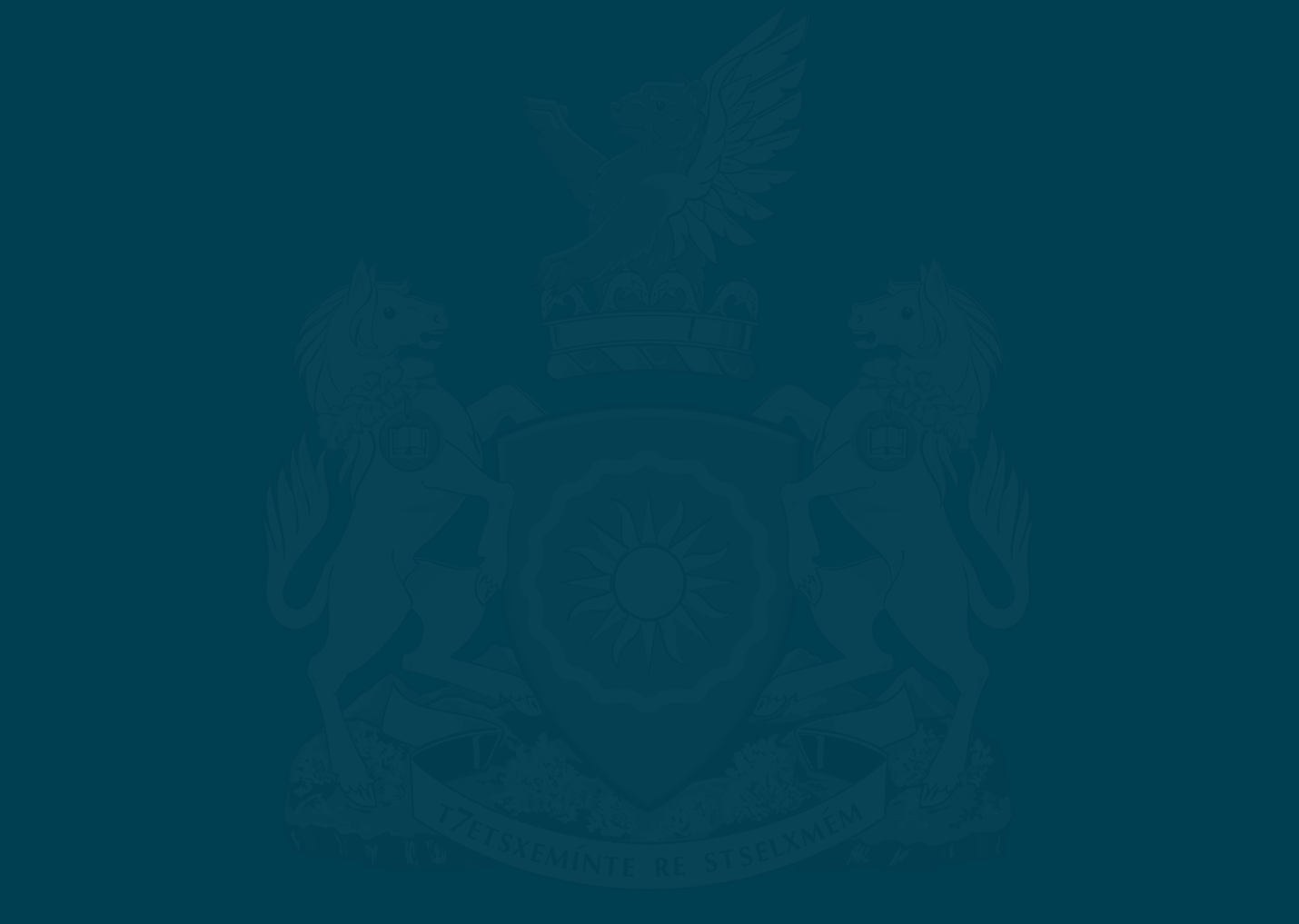
TRU 2001 Honorary Degree Recipients
THOMPSON RIVERS UNIVERSITY
Dr. Mary Alice Danaher, a Sister of the Congregation of Notre Dame, holds a PhD. in Educational Leadership, and started a new legacy of education for the Canim Lake Indian Band.
Sister Mary Alice Danaher first arrived to teach domestic courses at the Canim Lake Reserve in 1970, but soon taught adult education on the reserve for two years, helping 36 band members to complete Grade XII.
After six years away as a teacher and administrator in Quebec, where she also founded a foster home for youth, Sister Mary Alice returned to Canim Lake at the request of Band members, where she worked with them to establish an on-reserve elementary and secondary school--a radical concept at the time. With Mary Alice's help, youth dropout rates fell and adult dropouts returned to school, bringing the 487-member band's student population to 100.
Seeing that some of her graduates were ready for post-secondary studies, Sister Mary Alice, then-Chief Roy Christopher, and former Band Education Coordinator Charlotte Christopher sought a way to establish an on-reserve baccalaureate program and succeeded in securing a partnership with Gonzaga University in Washington State.
Working with Gonzaga professors and administrators and the Canim Lake Band, Mary Alice designed the seven-year Canim Lake-Gonzaga University Program. By 1993, 21 students aged 22 to 50 completed Bachelor's Degrees in Native Indian Leadership: 11 members with concentrations in Education and the remaining 10 concentrated in Business.
Later, as Education Coordinator for the Cariboo Tribal Council, Mary Alice brought together members of 15 Indian Bands, comprising Southern Carrier, Chilcotin, and Northern Shuswap people in a voluntary agreement in 1997 to further their education in a Weekend University partnership with UCC and the University of Northern BC (UNBC).
The program was later augmented by weekend language courses in Shuswap and Chilcotin offered by the Shuswap Cultural Education Society (SCES) in partnership with Simon Fraser University (SFU), so that students could also work toward achieving language certificates or obtain credits toward a First Nations Research Certificate. In her role as Education Coordinator, Sister Mary Alice also helped to develop the Shuswap Curriculum used in schools today, and, as an educator with a special interest in literacy, continues to teach elders to read.
Mary Thomas, an Elder of the Neskonlith Indian Band #3 in Salmon Arm, has gladly and actively given of her talents and knowledge to create a lasting legacy of support and heritage for her culture, and for the earth.
A survivor of a Kamloops Indian Residential School education where she was punished for speaking her Native language or for practicing Native arts, Mary Thomas well knows the value of self-esteem: she founded the Central Okanagan Interior Friendship Centre in Kelowna in 1970 as a gathering place for First Nations people in support of a cultural revival; four years later, she founded the Skalaow Society in Salmon Arm to support Native arts and crafts.
Mary Thomas received the BC Museums Association Distinguished Person Award in 1989 and then the Governor-General's Commemorative Medal in 1992 for her work constructing kekulis at the Secwepemc Cultural Heritage Park in Kamloops, the Central Okanagan Friendship Society in Kelowna, and the Smithsonian Institute in Washington, and for her efforts preserving and sharing Secwepemc culture.
In 1996 Mary Thomas was designated a Paul Harris Fellow by The Rotary Foundation in honour of her unceasing work in aboriginal education. As well as keeping alive the language and stories of her people, Mary Thomas teaches the traditional skills of coiled root and pine-needle basket weaving, birch-bark basket making, beadwork, doll making, dugout-canoe making, traditional pit-cooking, and fish-trap construction. Mary Thomas developed the Interior Salish education package for use in schools and universities, and the Lak-La-Hai-ee book series for the Kelowna Museum, and has traveled widely throughout British Columbia to educate First Nations and non-First Nations alike in Secwepemc traditional crafts and language.
Mary co-authored the 1994 book, First Nations Journal of Justice, and she was both a member of the Advisory Board of the Native Adult Education Resource Centre at Okanagan University College, and on the Board of Directors of the Round Lake Treatment Centre in the mid-'90s. She continues to serve as a member of the Okanagan University College First Nations Council and of the BC Law Courts Education Society.
Mary mentors students of botany and ethnobotany across Canada, and continues to act as an elder advisor to federal and provincial elected officials. She has collaborated on several ethnobotany projects and publications with Dr. Nancy Turner of the University of Victoria, and she has worked tirelessly to revive knowledge in traditional medicinal and food plant uses.
As founder of the Salmon River Watershed Coalition and as a member of the Salmon River Watershed Round Table, she spearheaded a joint wetlands project between Ducks Unlimited and the Neskonlith Band at the mouth of the Salmon River. She was the first native North American to receive the Indigenous Conservationist of the Year Award from the Seacology Foundation of Utah, and in 2000, she received an Honorary Doctorate of Laws from the University of Victoria in recognition of her skills, knowledge, study and teaching of First Nations culture and her promotion of sound environmental practices.
Share your congratulations and well wishes to our graduating class online!
Sign Virtual Guestbook